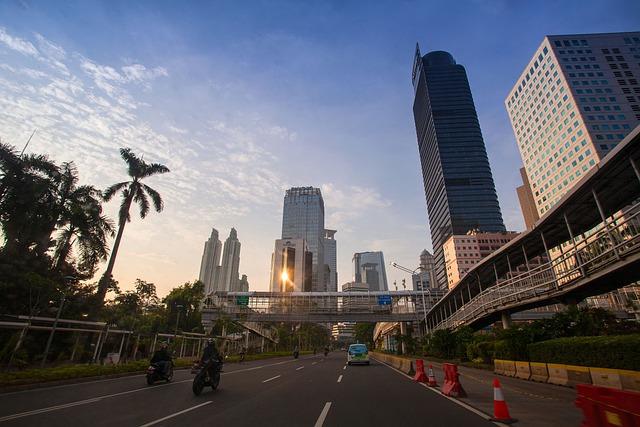Building a Supportive Network Abroad: Community vs. Isolation
In an era marked by globalization and increased mobility, many people are contemplating a life beyond their home country’s borders.
The allure of new opportunities, diverse cultures, and a different pace of life often prompts people to consider establishing themselves abroad.
However, the prospect of starting afresh in an unfamiliar land can be daunting, and one of the critical factors that can make or break the experience is the ability to build a supportive network.
The dichotomy between community and isolation becomes particularly pronounced when venturing into a new chapter of life in a foreign country.
On one hand, there’s the draw of a tight-knit community, where individuals come together, sharing common experiences and forming bonds that provide a sense of belonging.
On the other hand, there’s the allure of isolation, where one can seek solace in solitude and self-discovery, free from the expectations and dynamics of a communal setting.
Personally, I fall in the latter camp, and I like solitude. I need to have my own space and privacy, and a tight-knit community isn’t really something I crave whatsoever.
The Power of Community
Communities, both online and offline, offer a sense of familiarity and support that can be invaluable when navigating the challenges of living abroad.
Local communities comprised of expatriates and fellow adventurers create a safety net, offering practical advice, emotional support, and a shared understanding of the unique struggles faced in a foreign land.
- Shared Experiences: In a community, individuals often share similar experiences of adapting to a new culture, grappling with language barriers, and overcoming the hurdles of relocation. These shared experiences foster a sense of camaraderie, making it easier to connect and form meaningful relationships.
- Practical Assistance: Whether it’s recommendations for local services, guidance on navigating bureaucratic processes, or assistance during emergencies, a supportive community can provide practical help that is often challenging to find when isolated. This network can act as a lifeline, helping newcomers acclimate to their new environment.
- Emotional Well-being: Moving abroad can be emotionally taxing. Loneliness, culture shock, and homesickness are common challenges. A community provides a built-in emotional support system, offering a platform to share feelings, seek advice, and find comfort in the understanding that others are going through similar experiences.
- Social Connections: Establishing a social life in a new country is crucial for a fulfilling expatriate experience. Communities facilitate social interactions, organize events, and create opportunities for individuals to connect, ensuring that newcomers don’t feel isolated or excluded.
While all of this sounds pretty good, especially the practical assistance part, I find it kind of weak if you need help for your emotional well-being. Call me callous or old-fashioned, but I believe in dealing with your own affairs by yourself.
The Appeal of Isolation
While communities offer a plethora of advantages, some people are drawn to the idea of embracing isolation as a means of self-discovery and personal growth.
The prospect of solitude in a new environment allows for a deep dive into one’s thoughts, values, and aspirations without the external influences that a community might bring.
- Independence: Choosing isolation doesn’t necessarily mean complete seclusion. It can also be about fostering independence and self-reliance. Embracing solitude encourages individuals to rely on their own instincts, problem-solving capabilities, and decision-making skills, leading to personal growth and a deeper understanding of oneself.
- Freedom from Expectations: Communities, by their nature, come with social expectations and dynamics, especially via social media. Isolation offers freedom from external pressures and societal norms, allowing individuals to define their own path without the influence of group expectations.
- Introspection: In a solitary setting, individuals have the space and time for introspection. They can reflect on their goals, values, and personal growth without external distractions, leading to a deeper understanding of their own desires and aspirations.
- Flexibility and Spontaneity: Isolation provides the flexibility to embrace spontaneity. You can make decisions on a whim, explore new places without the need for group consensus, and fully immerse yourself in the experience without the constraints of communal commitments.
Striking a Balance: The Middle Ground
While the debate between community and isolation is often framed as a binary choice, the reality is that many individuals find a middle ground that combines the benefits of both.
Balancing a supportive community with periods of intentional solitude can offer a well-rounded expatriate experience.
- Selective Social Engagement: Striking a balance involves being selective in social engagements. Individuals can choose when to participate in community events and when to retreat for personal time. This allows for the cultivation of relationships without feeling overwhelmed by constant social interactions.
- Establishing Personal Boundaries: Setting personal boundaries is crucial in navigating the complexities of community living. This involves being clear about one’s needs, communicating effectively, and carving out time for individual pursuits without feeling obligated to constantly engage with the community.
- Cultivating Independence within Community: Within a community, fostering individual independence is key. Encouraging members to pursue personal interests, goals, and experiences independently can enhance the overall well-being of the group while allowing individuals to grow on their own terms.
- Periods of Retreat and Reflection: Even within a bustling community, individuals can carve out time for periods of retreat and reflection. These moments of solitude provide the mental space needed for personal growth, introspection, and the development of a strong sense of self.
In short, you do you – whatever level of social interaction you’re comfortable with. I’m a loner, and this suits me very well. If I want social interaction, I can find it, but usually I don’t, so I have my privacy and can do whatever I want. One of the main reasons I escaped the West, honestly.



